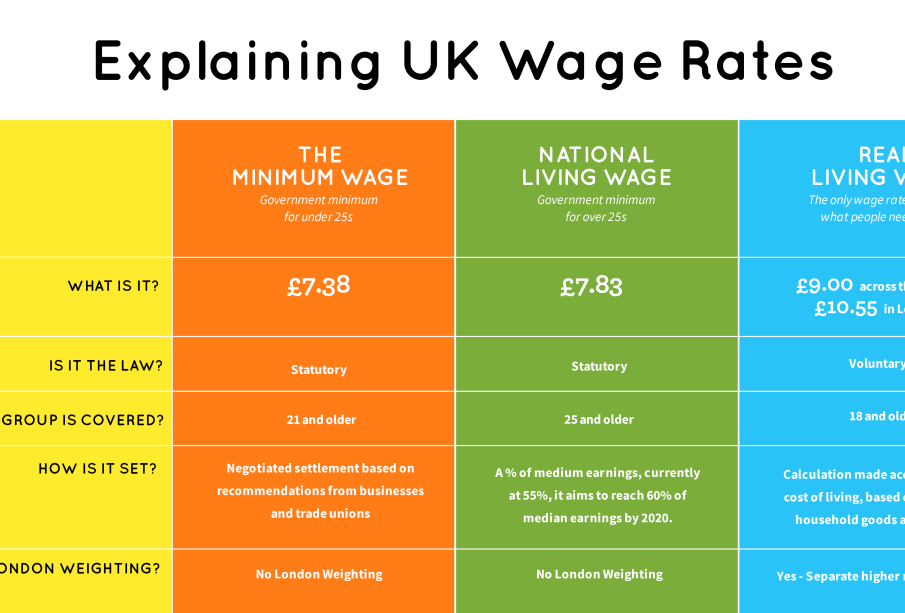The Importance of the Real Living Wage in the UK Economy

Introduction to the Real Living Wage
The Real Living Wage (RLW) is a vital measure aimed at ensuring that all workers in the UK are compensated fairly for their labour. Unlike the National Minimum Wage and the National Living Wage—set by the government based on legal standards—the RLW is an independently-calculated hourly rate designed to reflect the true cost of living. This initiative is particularly relevant in the current economic climate, where rising inflation and living costs challenge the financial stability of many households.
Current Statistics and Developments
As of October 2023, the Real Living Wage rate stands at £11.95 per hour in London and £10.90 per hour elsewhere in the UK, representing a significant increase from previous years. Recent announcements from the Living Wage Foundation indicate that over 12,000 employers are now accredited to pay the RLW, impacting more than 500,000 workers across various sectors.
In line with ongoing inflationary pressures, which have surged due to various global and domestic factors, the update of the RLW is seen as an essential response to ensure that lower-income families can meet their basic needs. The Foundation also reported that workers earning the RLW can afford necessities such as housing, childcare, and other essential services without defaulting on basic expenditures.
Impact on the Workforce and Businesses
Studies have shown that implementing the Real Living Wage not only benefits employees but also businesses. Companies that choose to pay the RLW report higher employee morale, lower turnover rates, and improved productivity. Employers recognize that investing in a fair wage structure leads to a more motivated workforce, ultimately benefiting their operations and customer satisfaction. In a recent survey, 75% of businesses that adopted the RLW indicated that it had a positive effect on their business model.
Conclusion and Future Outlook
The Real Living Wage is more than just a payment rate; it represents a commitment to eradicating in-work poverty and ensuring economic security for workers across the UK. As the movement for fair wages gains momentum, it is anticipated that more businesses will adopt the RLW policy, influenced by consumer expectations and competitive pressures. The Living Wage Foundation anticipates that by 2025, over a million employees will benefit from this initiative. For readers, understanding the Real Living Wage is crucial as it highlights the continuing conversation around fair employment practices and the sustainability of the UK economy.









